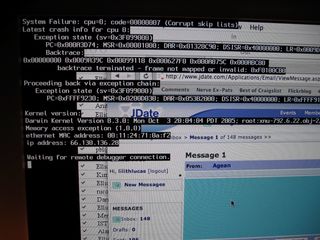Career
The Invisible Labor of Life Admin
Our time and energy are consumed by this work—but we can make it better.
Posted December 5, 2018

Imagine, when you’re halfway through reading this post, the device you’re reading it on crashes. This is all too easy for me to imagine. Halfway through writing this post, my screen froze.
I winced as I pictured all the aggravation and wasted time ahead of me: Researching hacks for the problem. Trying those strategies and failing. Seeking professional helpers, with all the associated emailing and scheduling and schlepping my laptop around. And possibly, in the end, having to purchase a new device and dealing with the attendant start-up costs. All the while, lamenting the unrealized hopes for my contribution to life on this day—or this week.
This is life admin. One sliver of it, anyway.
Life admin is all of the office-type work it takes to run a life and a household. From dealing with routine aggravations like broken technology, to making daily decisions about what to eat and how to cook it or find it, to managing big life-cycle events like a wedding, a pregnancy, or the funeral of a loved one.
Traditional chores like cooking and doing laundry are not admin, but they have an admin component—the “mental load” of the chore. Figuring out how and where and when to do your laundry, using what detergents, is laundry admin.
Caring for children isn’t admin, but care-work typically involves oodles of admin. It includes managerial work, like managing childcare, and secretarial work, like completing back-to-school forms. I picture kid admin—or kidmin—as the cloud of dust that follows Pigpen in the old Peanuts cartoons.
Life admin is mostly invisible labor. It’s literally invisible in that much of this work happens in our devices through multitasking—or in our minds as we plan and decide. It’s also invisible in the sense that it’s not typically understood as labor.
I’ve spent the last several years interviewing people about life admin. What started as an attempt to solve the admin problem in my own life has grown into something much larger, as I try to imagine how we can make admin better for all of us. The first step is to make admin visible.
Through these years of admin conversations, I’ve learned that our attitudes to admin vary, but some kinds are widely despised. Think lost luggage admin or insurance admin. (To one blogger, the end of unpleasant admin tasks is even a Good Thing about Death.) And the admin of poverty is especially brutal—especially when you don’t have access to an office with printer, copier, and scanner.
One payoff to recognizing and naming life admin is to make it visible. Once you see it coming you can make choices whether to take it on and whether to share the load. And when you must do admin, you can see that it’s real—not just a waste of time. (With some ingenuity and collective action, we can also get companies, governments, and schools to make life admin better for everyone, but that’s a story for another day.)
Making life admin visible isn’t only self-serving. It can also allow you to see the life admin others do for you. Someone who spends all day cooking a special meal may hear thank you. But when was the last time you thanked someone for spending the day at the DMV? Have you ever honored someone (even yourself) for taking a broken computer in for repairs?
This last form of awful admin is now on my to-do list. If someone could whisk away this problem—if someone would manage the computer repair journey ahead of me—I would be grateful beyond all imagining.
© Elizabeth Emens, 2018. All rights reserved.
References
Ehrensaft, Diane. “When Women and Men Mother.” In Mothering: Essays in Feminist Theory (ed. by Joyce Trebilcot). Savage, MD: Rowman and Littlefield, 1983. (Coining the term “mental load.”)
Emma. Mental Load: A Feminist Comic. New York, NY: Seven Stories Press, 2018.


